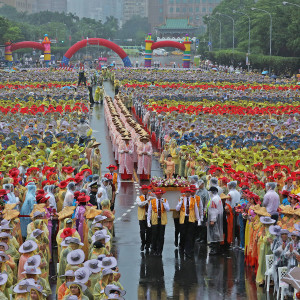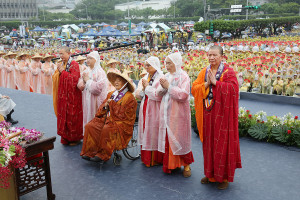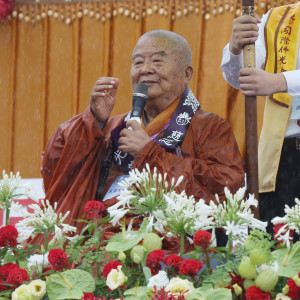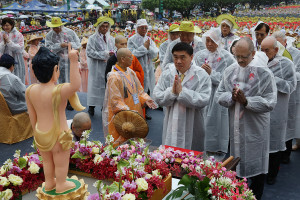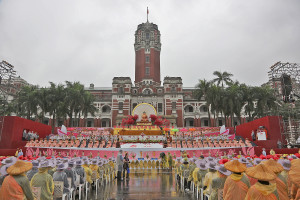Give Them a Hand Foundation and Partners Remain Committed to Improving the Medical Infrastructure of African Countries
The Give Them a Hand Foundation (GTAH) and its partners, United African Congress (UAC), International Association of Applied Psychology (IAAP) and Black Star News, have always had as their main focus the development of Africa and its 54 countries, and facilitating the achievement of the United Nations Sustainable Development Goals. This includes an emphasis on socio-economic development, gender equality, education for youth, and healthcare services for all, with special attention to remote rural, underserved communities.
In 2014, we were among the organizations first to sound the alarm about the impending Ebola outbreak in West Africa and its potential to become a worldwide pandemic. As a result, we hosted the first forum held at the United Nations on the subject, bringing together the Ambassadors of the three most-affected countries – Sierra Leone, Liberia and Guinea – with representatives from civil society, WHO, the UN, and the medical profession. An impressive outcome was that expatriate organizations mobilized to send over a million-dollars-worth of medical equipment and supplies to those affected countries. We followed that forum with a major awareness-raising event in the UN General Assembly Hall featuring speeches by the UN Secretary-General Ban Ki-moon, US Ambassador to the UN Samantha Power and the Ambassador of the AU Observer Mission.
In 2019, GTAH, UAC and IAAP joined the fight against the Ebola outbreak in the Democratic Republic of the Congo (DRC) that was claiming thousands of lives. We partnered with Friends of the Congo here in the USA and held a forum in New York City with panelists from CDC, WHO, Harvard University, and other organizations. We also reached an agreement with the University of Butembo in North Kivu to provide training for students in psychology, communications and pastoral studies, community leaders, and faculty members on risk communication, psychosocial support, and community engagement, including a community service element. The project will be revived when the COVID-19 pandemic ends.
However, our partnership to help the people of the DRC continued, to date, with our partners on the ground in South Kivu. The current project combats COVID-19 in the region through the elements of entrepreneurship (hiring local women to sew masks distributed free to the community), and health and psychosocial skills education, about mask-wearing, hand-washing and psychosocial activities. We provide handwashing stations in key locations and infographics to inform the community on good sanitation and building psychological resilience. Success of the project is anecdotally reported, and data is being evaluated.
As with Ebola, we were the first to raise the alarm about the COVID-19 threat to Africa at the UN. In response, we have been hosting webinars on the overarching theme “The Coronavirus in Africa.” All have included experts from various disciplines, as well as drawn large numbers of registrants and garnered positive feedback from an audience of a wide cross-section of the diplomatic community, government ministers, NGOs, health professionals, advocates, media, and others.
The first webinar, on 9 April, addressed the topic “Coronavirus in Africa: Stopping the Spread and the Panic”. Speakers included the Ambassador of Sierra Leone to the United States, the Ambassador of Ethiopia to the United Nations and the Chargé d’Affaires of the African Union Mission in Washington, DC.
The second webinar on 30 April was entitled, “Coronavirus in Africa: Racism, Discrimination, Xenophobia and Violations of Human Rights in the Era of the Covid-19 Pandemic”. Speakers included the former AU Ambassador in Washington, DC, Dr. Arikana Chihombori-Quao, UNHCR Deputy Director Richard Towle, Ms. Yaqui Wang from Human Rights Watch, and human rights activist and professor at Emory University, Isabella Alexander-Nathani.
For our third webinar, on “The Impact of the Lockdown from Reporters on the Ground”, leading journalists from South Africa, Lesotho, Nigeria, and Ghana reported on the current state of the crisis in their respective countries.
The fourth webinar, held on 4 June, focused on “The Impact of the Lockdown on Food Security” and featured as the main speaker H.E. Dr. Owuso Afriyie Akoto, the Minister of Food and Agriculture for Ghana.
Our fifth webinar focused on “The Economic Impact of Covid-19 on Africa: Building a Sustainable Future”. Speakers included Mr. Mamo Mehritu, Chief Economic Advisor to the Prime Minister of Ethiopia, Mr. Abiy Ahmed, and Professor Jeffrey Sachs of the Sustainable Development Institute at Columbia University.
The 6th webinar addressed “Innovations and Technology in Health Care in Africa” and the 7th webinar focused on “Gender Disparities: Its Impact on Women and Girls”.
The format usually involves three speakers, presenting for 10-12-minutes, followed by a 20-minute Q&A session with our resident panel of experts, and another 20-minute Q and A with attendees.
Our resident panel of experts comprises Dr. Judy Kuriansky, the main representative of the IAAP at the United Nations and Professor of Clinical Psychology at Columbia University Teachers College; Dr. Mohammed Nurhussein, Professor Emeritus of Medicine from SUNY Downstate Medical Center; Mr. Milton Allimadi, Professor of African History at John Jay College; and Ms. Stephanie Evans, Director of Medical Imaging at Harlem Hospital.
Stephanie Evans, Executive Director, Give Them a Hand Foundation
Gordon Tapper, Founder, Give Them a Hand Foundation
Following see the invitation flyers for the webinars
WEBINAR #1 – 9 April 2020: “Stopping the Spread and the Panic”

WEBINAR #2 – 30 April 2020: “Racism, Discrimination, Xenophobia and Violations of Human Rights in the Era of the Covid-19 Pandemic”

WEBINAR #3 – 14 May 2020: “Impact of the Lockdown from Reporters on the Ground”

WEBINAR #4 – 4 June 2020: “Impact of the Lockdown on Food Security”

WEBINAR #5 – 18 June 2020: “Economic Impact of Covid-19: Building a Sustainable Future”

WEBINAR #6 – 9 July 2020: “Technology and Innovation in Healthcare in Africa”

WEBINAR #7 – 23 July 2020: “Gender Disparities: Its Impact on Women and Girls”











